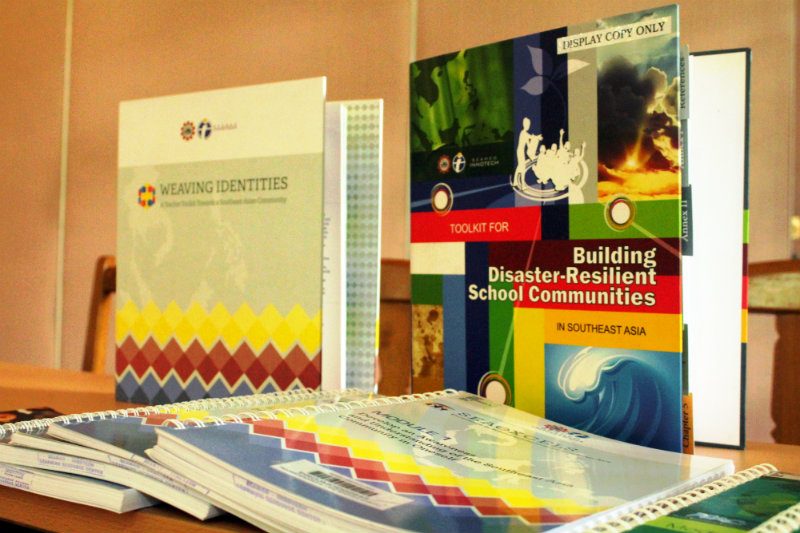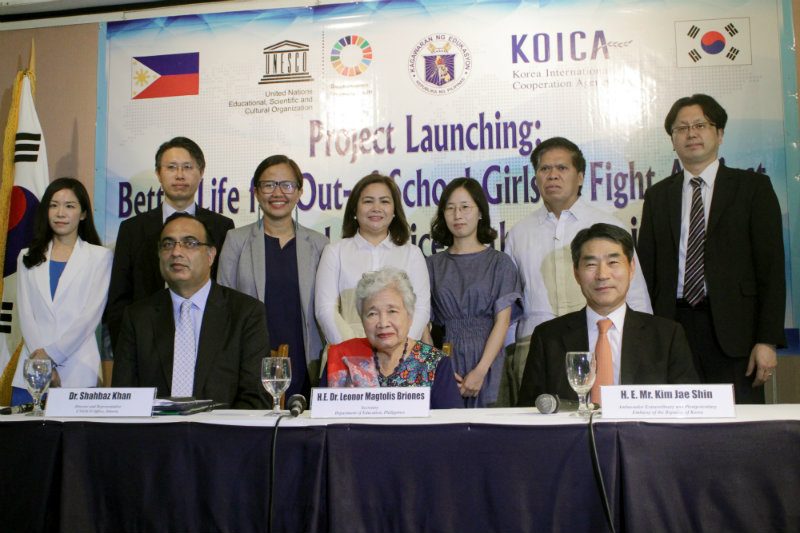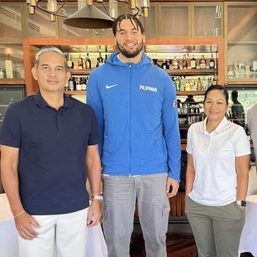SUMMARY
This is AI generated summarization, which may have errors. For context, always refer to the full article.

MANILA, Philippines – How can we improve the quality of life for girls living in poverty?
This is one of the questions that the “Better Life for Out-of-School Girls to Fight Against Poverty and Injustice in the Philippines” project hopes to address.
Launched on Friday, July 14, 2017, the project will focus on Tacloban City and the municipality of Palo in Leyte. (READ: Catching up on ALS: Challenges of a ‘parallel system’)
The project, led by the United Nations Educational, Scientific and Cultural Organization (UNESCO), the Department of Education (DepEd), and the Korea International Cooperation Agency (KOICA), aims to increase the passing rate among out-of-school girls in the Accreditation and Equivalency (A&E) Test by establishing and operating a Girls Education Center.
According to a 2016 survey conducted by the Philippine Statistics Authority, one in every 10 Filipinos aged 6 to 24 years is an out-of-school youth (OSY). (READ: The country’s next leaders should focus on the youth)
The 2016 Annual Poverty Indicators Survey also showed that about 10% or 3.8 million of the total 39 million Filipinos aged 6 to 24 years old do not go to school.
The study further discovered that the proportion of OSY in children was higher among females than males, with marriage or family matters as the main reason for not attending school.
Responding to the challenges faced by girl learners, the project also seeks to improve the skills of ALS mobile teachers, and implement the use of K-to-12 ALS teaching and learning materials. (READ: All eyes on ALS, ‘centerpiece’ of basic ed under Duterte)
“This project is not an isolated instance; something that just cropped up in the minds of UNESCO and KOICA,” DepEd Secretary Leonor Magtolis Briones said at the project launch.
Briones also said the project considered President Rodrigo Duterte directive to educate young students on the effects of illegal drugs, for reproductive health to be taught to students as young as 10 years old, environmental disasters awareness, and intensification and extension of ALS.
“This is very responsive to the priorities of the government in education, particularly girl children,” Briones added.

The $6 million-dollar project was made possible with the support of the South Korean government, through KOICA.
“This initiative aims to tackle gender inequality in education, and help girls to realize their full potential….I expect this project to be a catalyst in enhancing our school girls’ access to education, and promote gender equality,” said Korean Ambassador Jae-Shin Kim.
UNESCO, for its part, expressed its commitment to support the Philippine effort.
UNESCO said it supports the government, through DepEd, “in its efforts towards the attainment of Sustainable Development Goal 4-Quality Education. And most especially in its efforts to bring quality, accessible, relevant, and liberating basic education for all with focus for those children who are lost, last, and least,” UNESCO Jakarta Office Director and Representative Shahbaz Khan said in a press statement (READ: Are graduates of alternative high schools ready for college?)
Over 50 representatives from key offices of DepEd, Philippine government agencies with initiatives related to ALS, UNESCO Asia Pacific Centre of Education for International Understanding, KOICA, and SEAMEO INNOTECH attended the launch. – Rappler.com
Cielo Marie Esmeria is a Rappler intern.
Add a comment
How does this make you feel?





There are no comments yet. Add your comment to start the conversation.